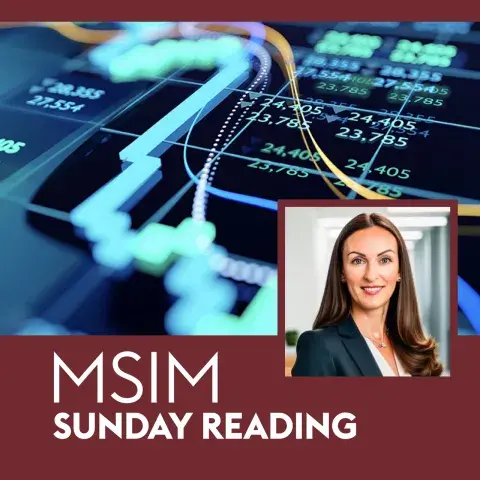
MSIM Sunday Reading is a weekly publication highlighting a current and relevant topic chosen by a professor of the Master of Science in International Management for their courses. The Franklin community gets an inside look at the coursework and specializations offered at MSIM and expert commentary on international issues affecting our world today. This week's MSIM Sunday Reading is in conversation with Vera Dianova, Adjunct Professor of Economics at Franklin. Her article discusses the importance of a broad-based, value-driven, transdisciplinary management education in future leadership roles, and explains how her course on International Trade, Production and Finance contributes one essential component to the toolkit of future business leaders that dare to think outside the box of conventional economic perspectives.
Vera Dianova obtained a Ph.D. in Monetary Economics from the University of Fribourg in 2018 and an M.Sc. in European Political Economy from the London School of Economics. Since joining FUS in 2020, she has taught a variety of courses in the economics and management disciplines. Her current research interest is in the field of behavioral economics and decision sciences, with a particular focus on the impact of automation and artificial intelligence on complex on-the-job decision-making processes. Prior to joining FUS, Prof. Dianova worked in the London finance industry as an economist, deputy portfolio manager, and credit analyst for Clariden Leu, a Swiss private bank.
The world is going through a tumultuous period. Stubborn inflation, rising interest rates, recent crypto turbulence, hidden financial leverage (Noonan & Mourselas, 2023) and a complicated post-COVID-19 labor market (Beretta et al., 2023) are just some of the phenomena posing evident challenges to business leaders around the globe. Such a complex economic landscape underscores the importance of a solid understanding of the theoretical and empirical underpinnings of global economic dynamics, which is essential for effective decision making in the corporate world. But pressure is building for business leaders to go beyond traditional managerial responsibilities by contributing to a corporate environment that fosters value-based (Jack, 2022), inclusive (Bakker, 2022) and environmentally conscious (Hill, 2022) decision-making, thus permitting for-profit enterprises to contribute to addressing some of the most pressing global challenges.
It is no surprise that the demand for management training is on the rise (Murray, 2023). Graduates of broad-based, transdisciplinary programs, such as Franklin University Switzerland’s MSIM, will enter a world full of exciting career opportunities (Barrett, 2017), and will be well-situated to face a rapidly changing labor market in the age of automation and artificial intelligence (Dianova & Schultz, 2023). With up to a quarter of existing jobs expected to change within the next few years (World Economic Forum, 2023), business leaders with advanced degrees who demonstrate a combination of specialized knowledge, authentic and value-based leadership skills (Wylie, 2022), and an acute ability to understand volatile global economic dynamics will hold a competitive edge in conquering the most prestigious and impactful leadership roles.
In Professor Dianova’s course International Trade, Production and Finance for Global Managers, students learn to take a broad perspective on the global economy and to construct their understanding of the world around them on a solid theoretical and empirical foundation. A critical approach to evaluating existing theories and mainstream interpretations of economic phenomena is encouraged, and contemplation of challenging economic questions is inevitable: are there valid alternatives to the dominant, quantitative model of economic growth? Does globalization still “work”? (Wolf & Derbyshire, 2023). Because if “Good Leadership Is About Asking Good Questions,” as the title of a Harvard Business Review article by J. Hagel III suggests (2021), great leadership is about asking the difficult ones.
Bakker, R. (9 September, 2022). Businesses must focus on ability, not disability. Financial Times.
Barrett, H. (5 September, 2017). Plan for five careers in a lifetime. Financial Times.
Beretta, E., Brinberg, D., Dianova, V. G., Miniero, G., & Sponchioni, C. (2023). The post-COVID-19 job market: AI in recruitment and career guidance services. California Management Review.
Dianova, V. G., & Schultz, M. D. (2023). Discussing ChatGPT’s implications for industry and higher education: The case for transdisciplinarity and digital humanities. Industry and Higher Education. Advance online publication.
World Economic Forum (2023). Future of Jobs Report 2023.
Hagel III, J. (2021). Good leadership is about asking good questions. Harvard Business Review.
Hill, A. (2022, 7 September, 2022). Why the future of ESG is at a crossroads. Financial Times.
Jack, A. (2022, 11 September, 2022). Masters in management: evolution is essential in uncertain times. Financial Times.
Murray, S. (2023, 10 September, 2023). Can the 'European' masters in management go global? . Financial Times.
Noonan, L., & Mourselas, C. (2023, 6 September, 2023). FSB warns of risks posed by hedge funds' 'hidden leverage'. Financial Times.
Wolf, M., & Derbyshire, J. (2023, 29 May, 2023). FT News Briefing In Martin Wolf on saving democratic capitalism.
Wylie, I. (2022, 5 September, 2022). What Generation Z wants from a business masters. Financial Times.

